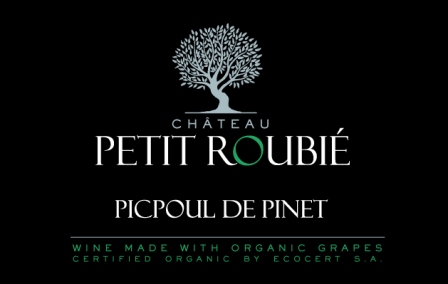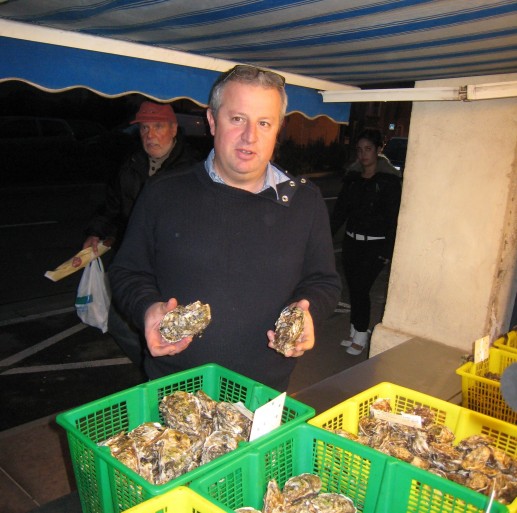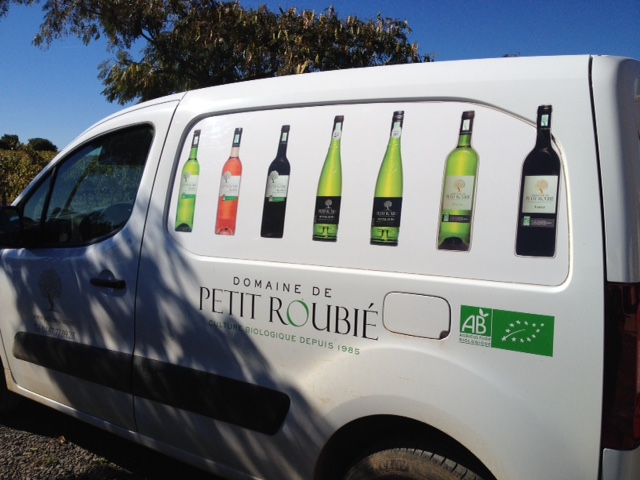Château Petit Roubié, Picpoul de Pinet
California sales only

| Country & Region | France, Languedoc |
| Appellation(s) | Picpoul |
| Producer | Olivier et Floriane Azan |
| Founded | 1981 |
| Website | www.petit-roubie.com/index.php?langue=2 |
Olivier and Floriane Azan bought Petit Roubié in 1981 and converted to organic farming in 1995. Today, surprisingly enough, Petit Roubié is still the only certified organic domain in the Picpoul de Pinet appellation. The Azans farm a total of 59.50 hectares, or 147 acres, of vines, all of which is harvested at night to preserve acidity in the grapes. The vineyard parcels are broken down among grapes destined for such vin de pays wines as Cabernet Sauvignon, Syrah, Tannat, Carignan and Sauvignon Blanc. Their most important production, however, is Picpoul.
The village of Pinet lies within a mile of the Via Domitia—the original Roman thoroughfare connecting Spain to the Rhône Valley and subsequently Italy—and was probably a villa during the Roman Occupation. The village lies between the modern day autoroute and the Bassin de Thau, a lagoon of the Mediterranean that is famous nowadays for its mussel and oyster farms, and which is commanded by the holiday and fishing town of Sète. In 1946 Picpoul de Pinet was classed as a VDQS, and got its AOC status in 1985. It’s one of the few French AOCs to promote a varietally named wine.

Picpoul is an ancient Mediterranean grape, with versions in noir and gris, but it is the white that excels. Prized for acidity, body, and flavor, it has become known as the Muscadet of the Languedoc because of the vines’ proximity to the sea and the wine’s association with the local seafood. In Occitan, the name translates as lip-stinger, or pecking hens, both referring to its biting qualities (especially biting when yields are too high). In the sunny south, a white grape that is able to ripen while retaining acidity is uncommon, and one that can do so with flavor is downright rare. Combine that with a domain that farms organically, and you have the rarest of the rare. As for the name, ‘small roubié’ is the name of the land the domain occupies. Les vieux du village (the village elders) think Roubié may have been the name of an ancient proprietor.

The Wines
| Wine | Blend | Description |
|---|---|---|
| Picpoul de Pinet | Picpoul | Aromatically tantalizing, this is a fresh wine with a touch of brine or saline quality and with a brisk but compelling body. Production averages 11,000 cases. |
| Tannat | Tannat | The grape of France's Southwest. Olivier planted a parcel in the early 2000's and he is as proud as punch that the wine from his grapes is quintessentially Tannat -- rich with the dark color, the big fruit and forceful flavors mingled with smoke and bacon that you would hope for. His rendition is a bit more forward than those from Madiran or Irouléguy, but that's exactly what he wants. Production averages just over 1,000 cases. |